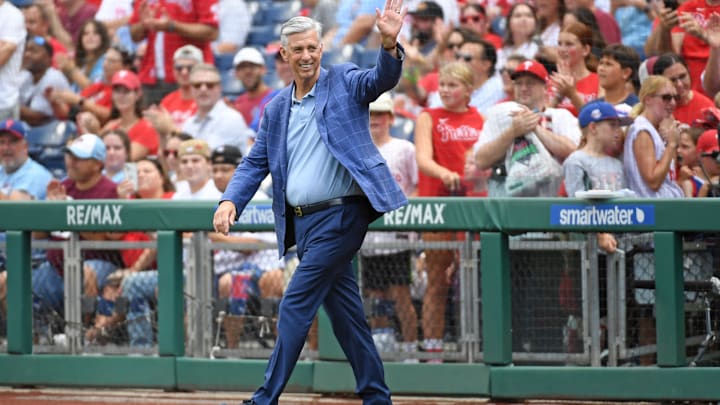Trading for Austin Hays
For the 2024 season, the Phillies fielded an outfield combination that consisted of the power-hitting Nick Castellanos, along with the defensively-strong Johan Rojas and Brandon Marsh, with Merrifield acting as their backup as the utilityman on the team.
However, with Merrifield failing to produce, along with the offensive output of both Rojas and Marsh leaving a lot to be desired, it left the Phillies no choice but to search for an outfield upgrade at the trade deadline. Despite other intriguing candidates available, Philadelphia ended up settling with Austin Hays from the Baltimore Orioles.
After putting together an All-Star season with the Orioles in 2023, Hays was amidst a down year in 2024 that saw him hit just .255 with a .711 OPS, with 18 runs scored, 13 doubles, three home runs and 14 RBI over 63 games prior to the trade. His struggles also resulted in his playing time being cut back in Baltimore in favor of younger prospects such as Colton Cowser.
The Phillies believed that if Hays was given everyday starting status, he should be able to revert back to his 20-homer, 70-RBI yearly pace that he had shown in his previous three seasons. In addition, with 23 DRS over that same time frame, Hays has proven that he could get things done in the field as well.
Unfortunately, he did not turn out to be the answer, as he struggled to stay healthy throughout his short tenure with the Phillies. Following the trade, Hays managed to get into only 22 games in total as he was sidelined by a hamstring injury in August and a kidney infection in September.
In the end, he batted .256 with a .672 OPS, eight runs scored, five doubles, two home runs and six RBI. He also saw minimal action during the postseason, striking out three times in just four at-bats. So rather than acquiring someone who could have provided a huge impact on the club down the stretch and in the playoffs, the Phillies instead bombed out with an acquisition that became a non-factor.
